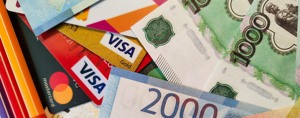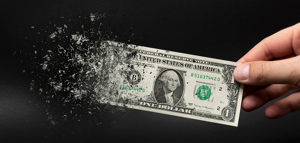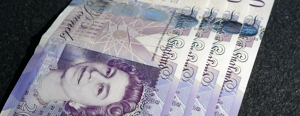Tavex uses cookies to ensure website functionality and improve your user experience. Collecting data from cookies helps us provide the best experience for you, keeps your account secure and allows us to personalise advert content. You can find out more in our cookie policy.
Please select what cookies you allow us to use
Cookies are small files of letters and digits downloaded and saved on your computer or another device (for instance, a mobile phone, a tablet) and saved in your browser while you visit a website. They can be used to track the pages you visit on the website, save the information you enter or remember your preferences such as language settings as long as you’re browsing the website.
| Cookie name | Cookie description | Cookie duration |
|---|---|---|
| tavex_cookie_consent | Stores cookie consent options selected | 60 weeks |
| tavex_customer | Tavex customer ID | 30 days |
| wp-wpml_current_language | Stores selected language | 1 day |
| AWSALB | AWS ALB sticky session cookie | 6 days |
| AWSALBCORS | AWS ALB sticky session cookie | 6 days |
| NO_CACHE | Used to disable page caching | 1 day |
| PHPSESSID | Identifier for PHP session | Session |
| latest_news | Helps to keep notifications relevant by storing the latest news shown | 29 days |
| latest_news_flash | Helps to keep notifications relevant by storing the latest news shown | 29 days |
| tavex_recently_viewed_products | List of recently viewed products | 1 day |
| tavex_compare_amount | Number of items in product comparison view | 1 day |
| Cookie name | Cookie description | Cookie duration |
|---|---|---|
| chart-widget-tab-*-*-* | Remembers last chart options (i.e currency, time period, etc) | 29 days |
| archive_layout | Stores selected product layout on category pages | 1 day |
| Cookie name | Cookie description | Cookie duration |
|---|---|---|
| cartstack.com-* | Used for tracking abandoned shopping carts | 1 year |
| _omappvp | Used by OptinMonster for determining new vs. returning visitors. Expires in 11 years | 11 years |
| _omappvs | Used by OptinMonster for determining when a new visitor becomes a returning visitor | Session |
| om* | Used by OptinMonster to track interactions with campaigns | Persistent |
| Cookie name | Cookie description | Cookie duration |
|---|---|---|
| _ga | Used to distinguish users | 2 years |
| _gid | Used to distinguish users | 24 hours |
| _ga_* | Used to persist session state | 2 years |
| _gac_* | Contains campaign related information | 90 days |
| _gat_gtag_* | Used to throttle request rate | 1 minute |
| _fbc | Facebook advertisement cookie | 2 years |
| _fbp | Facebook cookie for distinguishing unique users | 2 years |
Preventing The Arrival Of Cashless Society: Why Is It Important To Prevent It From Happening?

It is probably not news to anyone that Western countries are increasingly moving towards a cashless society. However, why is it extremely important to preserve cash and even encourage its use?
A recent news item about Switzerland holding a referendum on banning a cashless society points to a trend that has been going on for some time, where more and more politicians and people believe that the use of cash must be restricted. Some even advocate for its complete abolition.
Cash usage has plummeted around the world, and it is speculated that many countries may soon abandon its use altogether. Several Nordic countries in Europe are strongly moving in this direction. The advent of central bank digital currencies has amplified these speculations.
However, it is clear that cash is very important for protecting a free society. It is important for maintaining our financial privacy and autonomy, including the inclusion of different groups of people, and for extraordinary events where digital payments may not work.
Cash Usage Is Declining Rapidly
Cash usage plummeted in the 1990s as electronic banking began to rapidly spread. In the 2010s, various digital wallets and mobile payments, such as Apple Pay, were introduced. The most popular digital wallet is Alipay, which already has 1.3 billion users globally.
Norway is likely the closest to a cashless society. Only 3-5% of transactions at the point of sale are made in cash; 98% of Norwegians have a debit card; and over 95% of the population uses mobile payment applications.
Meanwhile, in Sweden, merchants have the right to refuse cash payments. At the end of last year, 8% of transactions in the kingdom were made in cash, a figure that was more than twice as high a decade ago. In Norway, on the other hand, the Ministry of Justice has recently proposed forcing businesses in the country to accept cash. However, this has not yet been formalised into law.
In a world where cash is king, the freezing of bank accounts becomes a financial prison, denying access to essential services and legal aid
Handling cash alone is already very difficult in the Western world. The Canadian government’s decision to freeze the bank accounts of numerous truck drivers who were protesting coronavirus restrictions last year serves as an example of this. It turned out that the lack of bank accounts essentially meant financial imprisonment, where you could buy food from the store but couldn’t pay for essential services such as mobile services. It also became very difficult to obtain legal assistance, as payment by transfer is usually required.
The European Union Wants To Limit The Use Of Cash In The United Kingdom
At the EU level, cash has been viewed with scepticism and is often associated with money laundering and terrorist financing. The European Commission has also proposed a directive that would prohibit cash payments exceeding 10,000 euros. This includes transactions where at least one party is a legal entity, such as a company.

However, in Europe, there are also opposing trends. The pressure group Swiss Freedom Movement announced in February that it had gathered enough signatures to hold a referendum on the prohibition of a cashless society. If successful, the government must ensure that banknotes and coins are always available.
Italian Prime Minister Giorgia Meloni proposed at the end of last year that entrepreneurs should have the right to refuse digital payments below 60 euros. She also wanted to increase the limit for cash payments from 2,000 euros to 5,000 euros. However, she was forced to abandon this plan under pressure from the European Commission.
The Pandemic Made US Businesses Not Accept Cash
In the United States, the advancement of technology has led to an increasing move towards a cashless society, and the COVID-19 crisis has accelerated this trend. However, it seems that the importance of cash has also begun to be recognised at the national level.
In 2021, Congress passed the Payment Choice Act, which includes provisions making it illegal for retailers to refuse cash payments. Additionally, retailers may not display signs stating that cash payments are not accepted, and cash-paying customers may not be charged higher prices. The legislation still needs Senate approval.
One of the reasons for the legislation was that many retailers wanted to ban the use of cash during the COVID-19 crisis, fearing that it could spread the virus. However, scientists quickly refuted this claim, and it is important to remember that cash still plays a very important role in US society. In a survey conducted by the Federal Reserve in 2020, it was found that 19% of all transactions are still made in cash. The average amount of cash that consumers carried increased by $20 to $74 in the same year.

According to data from the Federal Deposit Insurance Corporation (FDIC) in 2021, the proportion of US households without a bank or savings account fell to 4.5%, equivalent to about 5.9 million households, down one percentage point from 2019. In Europe, such households account for 4%, according to an analysis by the European Savings and Retail Banking Group (ESBG). All of these households are heavily dependent on cash.
A Gallup survey from last year found that 64% of Americans believe that the US will be “likely” or “very likely” to become a cashless society. This would mean that all transactions would be done electronically.
2019 Cash Surge Gives Way to Digital Transaction Rise
In recent years, a dramatic shift in the circulation patterns of various denominations of cash has painted a vivid picture of changing economic behaviours. The data reveals a striking increase in the distribution of higher denomination notes, particularly the 50, 20, and 10 units, in 2019. This increase suggests a significant change in how people use cash, which could be the result of factors like inflation making people prefer higher-value notes for regular purchases.
Conversely, the post-2019 period marks a contrasting scenario with a marked decline in the circulation of these higher denominations. This trend aligns with a broader societal shift towards digital payment methods and the gradual embrace of a cashless economy. The onset and continuation of the COVID-19 pandemic, starting in late 2019, likely expedited this shift. The pandemic’s influence, encouraging contactless transactions to reduce physical interaction, has been a critical factor in this transition.
The observed decrease in cash circulation also mirrors the impact of various economic policies. These policies, aimed at diminishing the reliance on physical cash, play a crucial role in curbing black market transactions and endorsing digital payments for enhanced traceability and security.
In essence, the evolving patterns in cash circulation underscore a fundamental shift in monetary habits. Technological advancements, the effects of the pandemic, and strategic economic policies all have a big impact on this shift away from traditional cash-based transactions and towards digital alternatives. These changes reflect a transformative era in financial transactions, signalling a new norm in the economic landscape.
Why Is It Important To Preserve Cash?
The Greatest Advantages Of Cash Are Freedom, Privacy, And Autonomy
Two parties can carry out a transaction without involving a third party, and no traceable information is left behind. Cash transactions ensure people’s basic rights to privacy, data protection, and identity. To maintain people’s freedom and prevent moving towards a surveillance society, cash must be preserved and its use encouraged.
The Greatest Advantages Of Cash Are Freedom, Privacy, And Autonomy
As technology advances, our privacy is increasingly at risk. Central bank digital currencies, for example, could potentially provide an opportunity to track and influence all of our purchases. Financial privacy is one of people’s most fundamental rights. When governments or corporations track our payment behaviour, it may endanger our civil liberties and, consequently, democracy.
Companies processing digital transactions have tremendous power and responsibility; they must ensure that transactions are completed and people’s data is kept safe.
Cash Is Universal
It does not require both parties to have a bank account, specialised equipment, or knowledge. Cash exists even when IT systems cease to function, making it useful in emergencies such as natural disasters or crises. This allows for transactions to be made when transfers are disrupted.
Natural disasters or wars may cause power outages, making electronic payments impossible. During Hurricane Sandy, several areas of New York were unable to make electronic payments. Residents walked several kilometres to withdraw cash. After Hurricane Maria hit Puerto Rico, the use of cash increased significantly because the power grid was out of service for several months.
It is recommended that people keep some cash in their wallets for emergencies, and families should have a week’s cash reserve for longer disruptions.
Cash Is Inclusive
Banknotes and coins are essential to prevent the exclusion of vulnerable groups, such as the elderly, low-income, or rural populations. An estimated 2 billion people worldwide do not have a bank account. Many of them struggle to provide financial security for themselves and their families. This part of the world’s population relies mainly on cash. Globally, about 200 million small and medium-sized enterprises lack access to banking services and financing.

Traditional financial institutions often do not reach people living in rural areas. The main problems are poor infrastructure or geographical constraints, making it difficult or too costly to provide essential services. In addition, many people worldwide have difficulty identifying themselves. Cash allows these people to support themselves and their families without restrictions.
Cash Also Helps Control Costs Better
Holding money physically has a psychological effect: spending cash is visible, so people have a better sense of how much they spend. When paying with a bank card, only the number that is debited from your account is displayed on the payment terminal.
Cash Is A Value Preserver
The Bank of Estonia states on its website that cash is not just a means of payment; it also allows for saving without the risk of payment delays and making smaller purchases and payments. Parents can also give cash to children for smaller purchases, contributing to their financial literacy. A friend or acquaintance can also trust cash to make purchases.
The move towards a cashless society has been happening for some time now, but it is important to preserve and encourage the use of cash. Cash plays a vital role in protecting financial privacy and autonomy, especially for vulnerable groups such as the elderly, low-income, and rural populations, and during extraordinary events where digital payments may not work. Cash also helps control costs better and is a value preserver. While the use of cash is declining rapidly, it is essential to recognise its significance and ensure that it continues to be a part of our society.

















